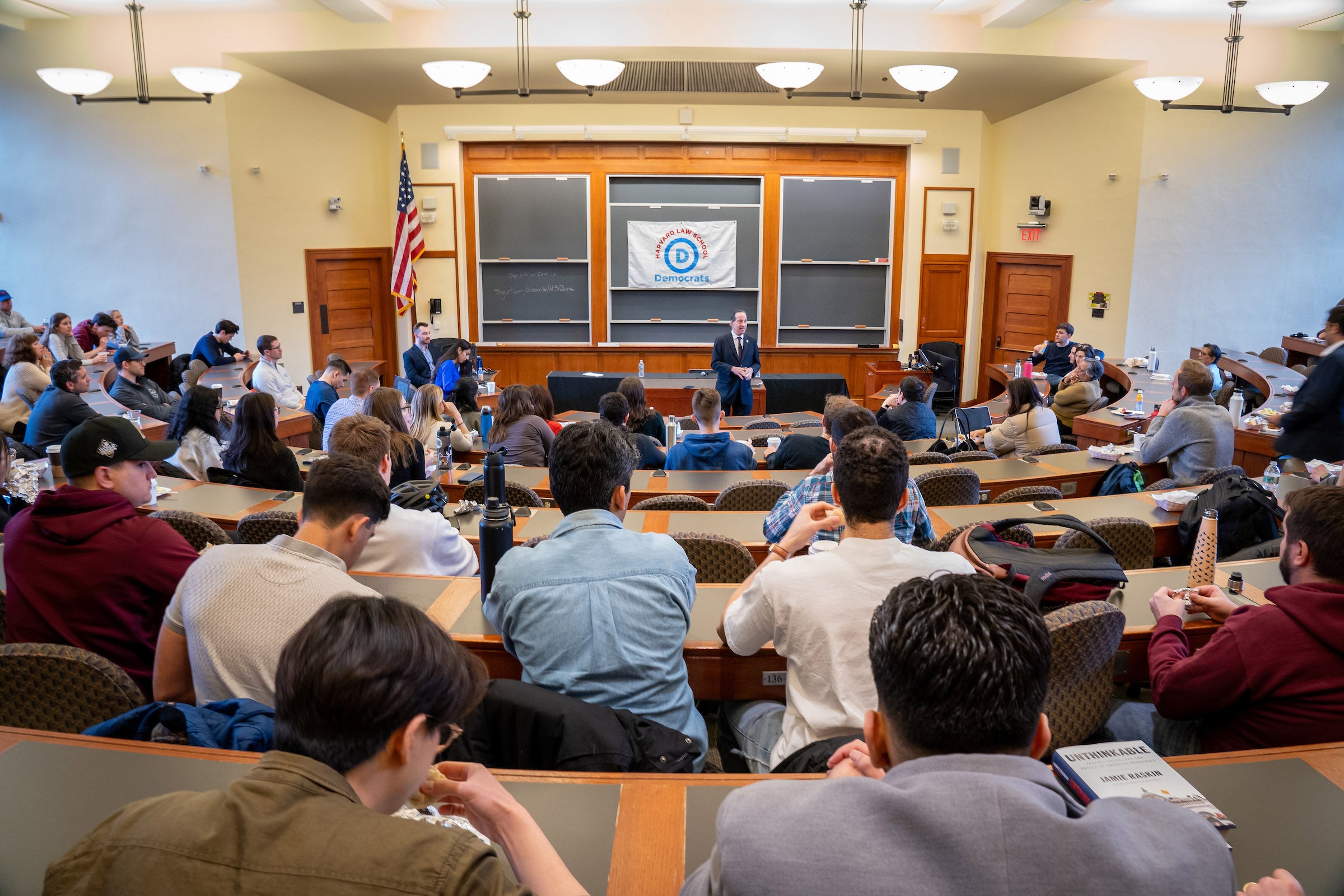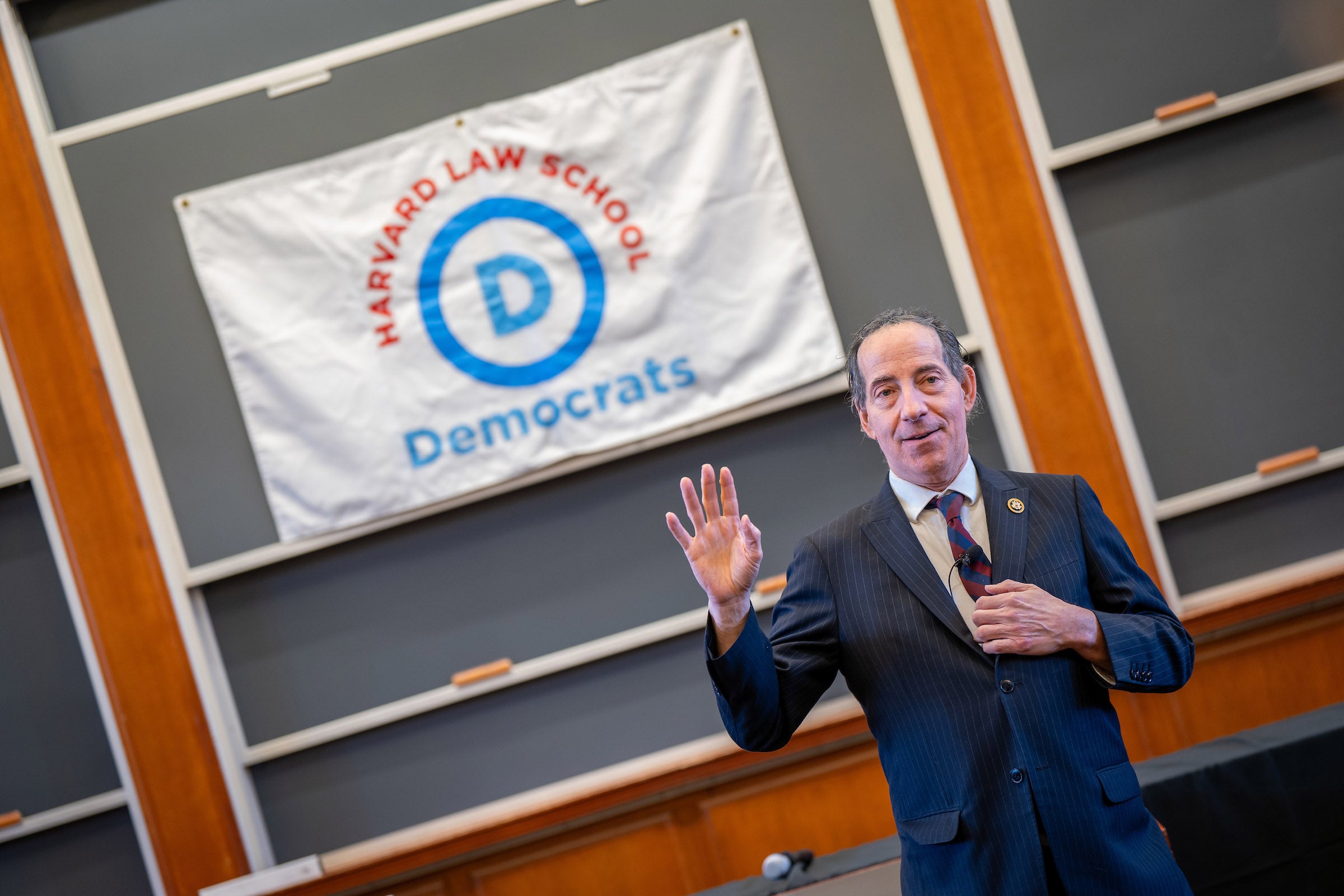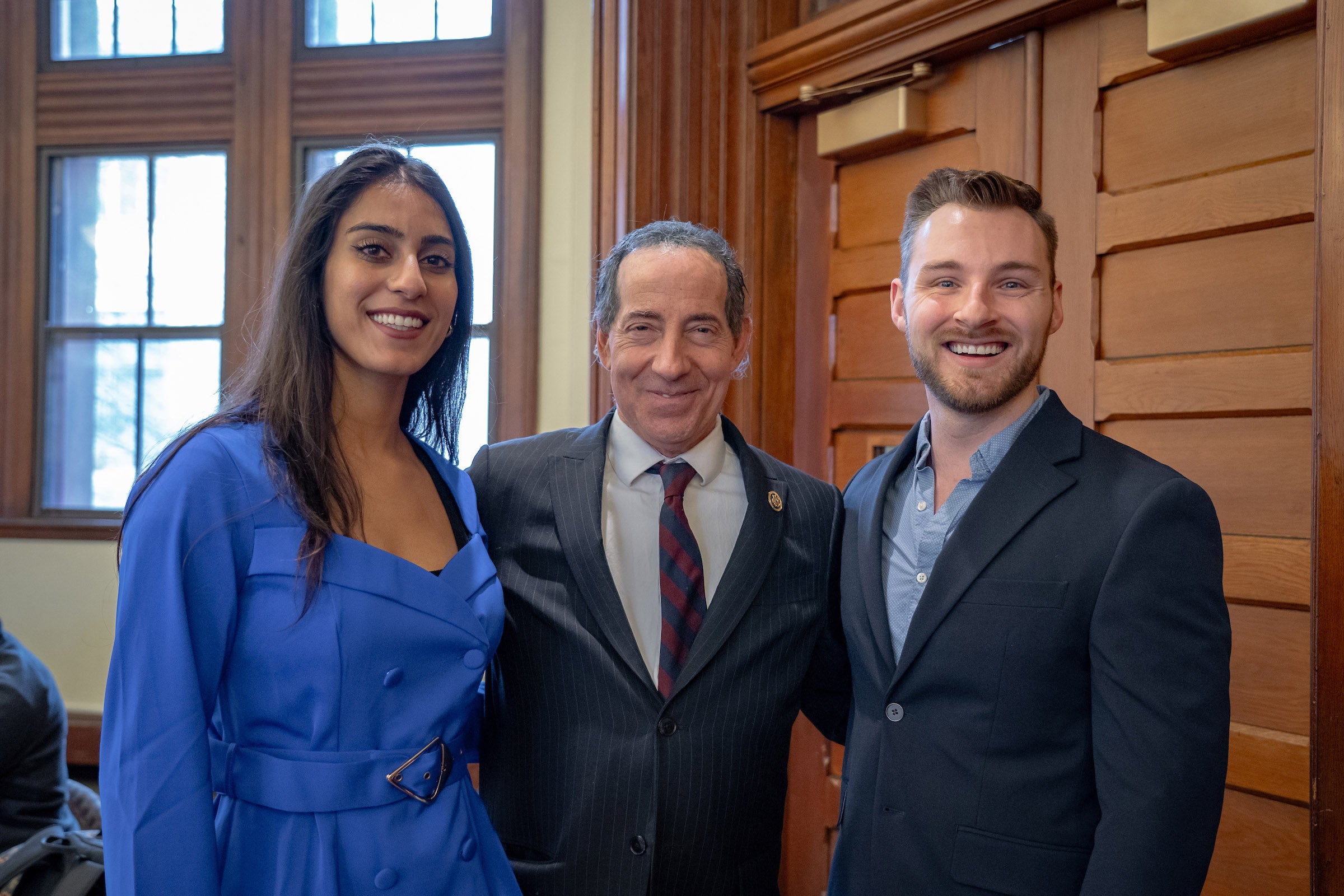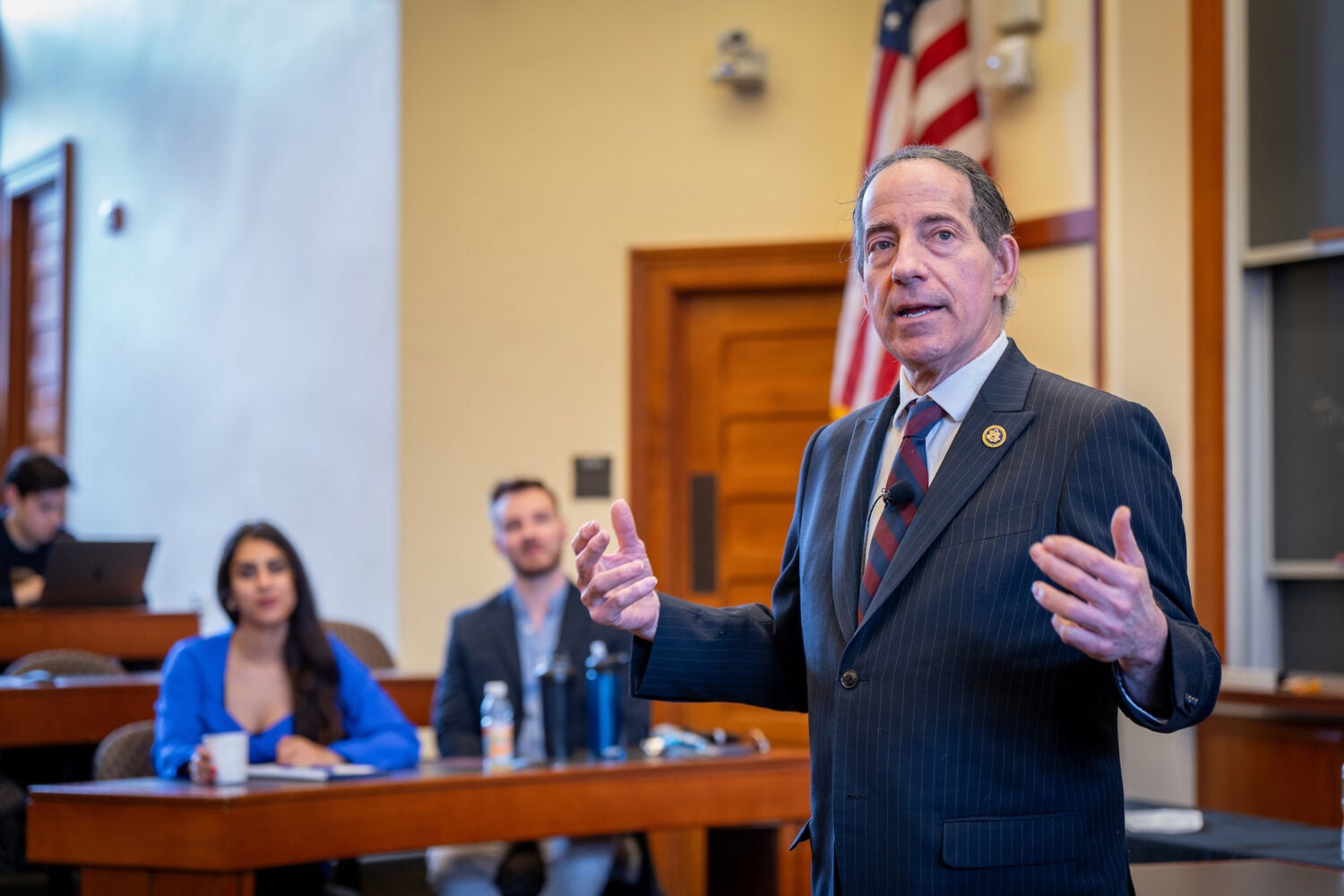In a recent visit to Harvard Law School, U.S. Congressman Jamie Raskin ’87 (D-Md.) suggested that the current period of American history is — despite or even perhaps because of its turbulence — a fertile era for law students who want to make a difference. And he urged listeners to use their understanding of the law and the Constitution to safeguard democratic norms.
Current political debates and the alleged actions of former U.S. president Donald Trump, Raskin said, have “awakened interest in areas of the Constitution that people barely thought about before. As dreary and difficult as these days are for democracy versus authoritarianism and fascism, these are also glory days for law review.”
A former Harvard Law Review editor, Raskin’s comments came during an April 5 lunchtime talk, moderated by Mohini Tangri ’24 and Zachary Woodward ’24 of the student-run organization HLS Democrats, which sponsored the event.
Raskin used the occasion to encourage students in the audience to explore a few particular areas of law he believes have become especially pertinent of late. The first, he said, is the Constitution’s Emoluments Clause, which had received little notice over the past two centuries until the wealth and property holdings of Donald Trump, a New York real estate mogul and TV star who was elected president in 2016 attracted unprecedented scrutiny. Not profiting from one’s time in the White House, Raskin said, is “a cardinal principle of democracy.”
He cited several former presidents who he believes set standards that should inform their successors. For instance, Raskin recalled, President Barack Obama ’91 in 2010 had donated to charity the $1.4 million he’d received when he was awarded the Nobel Peace Prize. President John F. Kennedy, he noted, had declined an offer of honorary Irish citizenship. And President Abraham Lincoln, he recounted, had asked Congress for permission to keep a gift of Syrian elephant tusks — only to be denied.



Raskin also suggested that students investigate the recent Supreme Court decision, Trump v. Anderson, which overturned a Colorado state court ruling that would have barred Donald Trump from appearing on the state’s election ballot. Both judgments centered on the question of whether the former president had violated the Fourteenth Amendment’s prohibition against the election to federal office of certain individuals who, “having previously taken an oath … to support the Constitution of the United States, shall have engaged in insurrection or rebellion against the same, or given aid or comfort to the enemies thereof.” The justices unanimously decided that enforcement of that constitutional provision could not be left to each individual state.
“I found this completely astonishing — a nine-zero decision that basically abdicated their responsibility and said it was up to Congress,” Raskin argued. “A real Supreme Court would have said, ‘Under Marbury v. Madison, it is our duty to tell people what the law is. That’s why we’re paid our fancy salaries.’”
Raskin also suggested that students might explore the Second Amendment, a subject he said was barely discussed in Constitutional Law classes during his own time at Harvard but which he believes has since taken on new relevance.
“There had been a two-century agreement that [the Second Amendment] was tied to the rights of a militia to bear arms,” he said. “This was seen both doctrinally and academically.”
That changed, he argued, when the Supreme Court ruled in District of Columbia v. Heller that the constitutional “right of the people to keep and bear Arms” protects the freedom of individuals to keep firearms in their home.
Although Raskin paid tribute to friendships he has fostered with people on the other side of the political aisle, he also called on fellow progressives to mobilize in the coming election.
“This election will resonate for generations,” Raskin said.
Warning of the potential risks he sees to the future of democracy in the U.S., the fourth-term congressman urged his audience to get involved in the upcoming election.
“I hope that all of you are going to be engaged in the conversation,” he said. “If you ever thought of giving one year of your life to the struggle for democratic freedom, this should be it.”
Want to stay up to date with Harvard Law Today? Sign up for our weekly newsletter.
